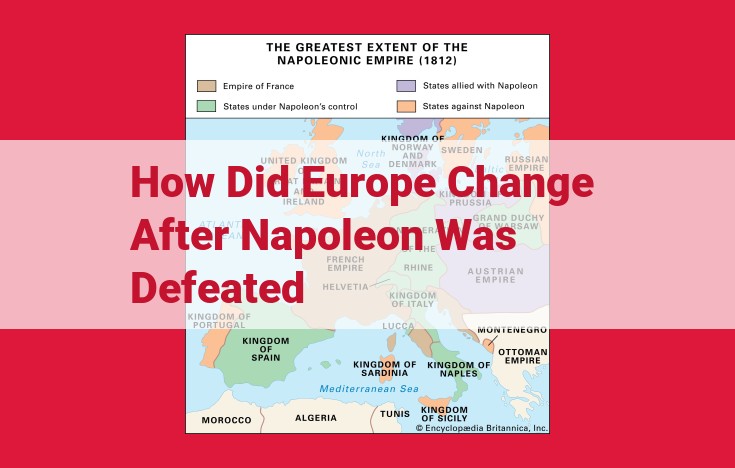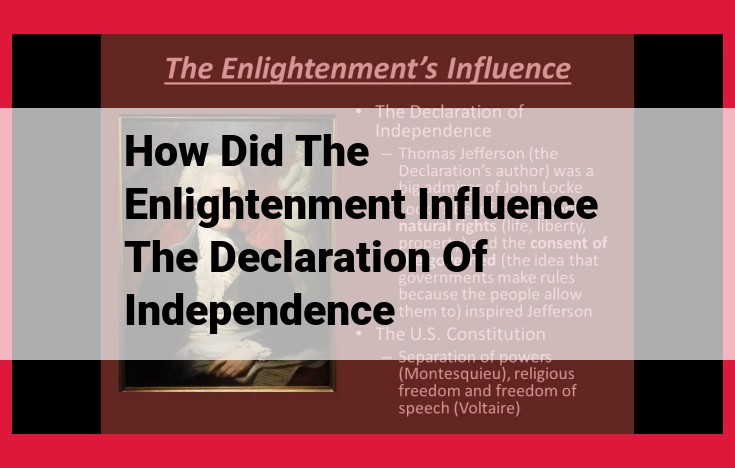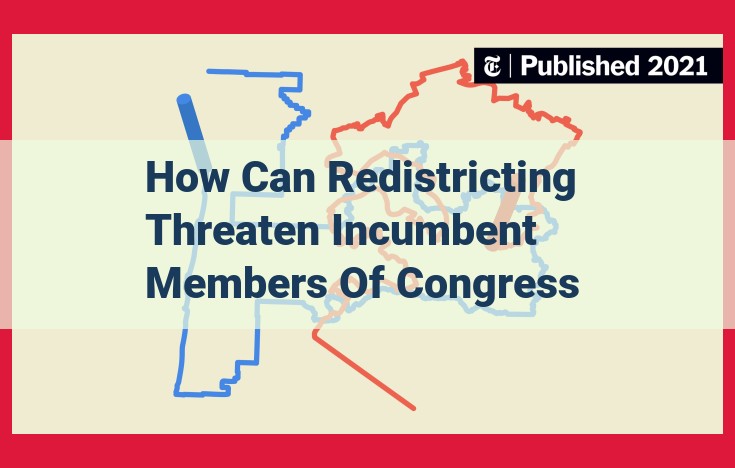Post-Napoleon Europe underwent profound political and territorial realignment, with the Congress of Vienna redrawing borders and establishing the Concert of Europe for stability. Economic transformation was fueled by the Industrial Revolution and free trade, driving economic growth and societal change. Social upheaval and political challenges marked the era, with the rise of the middle class, the Revolutions of 1848, and the spread of nationalism.
How the Congress of Vienna Reshaped Europe After Napoleon’s Downfall
The Prelude: A Continent in Turmoil
As the dust settled after the tumultuous era of the French Revolution and Napoleonic Wars, Europe stood at a crossroads. The old order had crumbled, leaving behind a continent in need of a fresh start. In Vienna, a grand gathering was convened to address the task of reconstructing Europe’s political and territorial landscape.
The Congress of Vienna: A Diplomatic Puzzle
The Congress of Vienna brought together representatives from all major European powers, including Austria, Prussia, Russia, Great Britain, and France. Led by the Austrian diplomat Klemens von Metternich, the delegates embarked on a delicate balancing act. Their goal was to create a stable and peaceful order that would prevent future conflicts.
Redrawing Borders: The Great European Game
The Congress of Vienna re-established the principle of legitimacy, which emphasized the divine right of monarchs to rule. Former rulers who had been deposed by Napoleon were restored to their thrones, while France was stripped of its conquests. The borders of Europe were redrawn with an eye to maintaining a balance of power, ensuring that no single nation could dominate the continent.
The Concert of Europe: A Promise of Stability
To prevent future wars, the delegates established the Concert of Europe, a loose alliance of great powers that would collectively address any threat to peace. The Concert of Europe became a symbol of stability in the 19th century, but it would face its greatest challenges in the years that followed.
A Legacy of Change: Shaping the Future
The Congress of Vienna left an indelible mark on Europe. Its territorial redistributions, emphasis on legitimacy, and creation of the Concert of Europe shaped the course of European history for decades to come. The lessons learned from this pivotal event continue to resonate today, reminding us of the importance of diplomacy and the enduring search for a lasting peace.
The Concert of Europe: Preserving Stability in a Post-Revolutionary Era
1. The Seeds of Instability
After the tumultuous years of the Napoleonic Wars, Europe was left in a state of political turmoil and territorial upheaval. The victors of the war, eager to restore order and prevent future conflicts, gathered at the Congress of Vienna in 1814-1815. One of the key outcomes of the Congress was the Concert of Europe, a diplomatic agreement designed to maintain stability and balance of power on the continent.
2. A League of Powers
The Concert of Europe involved the major powers of the time, including Austria, Prussia, Russia, France, and Great Britain. These countries formed a loose alliance, committing to consult and cooperate on matters of European affairs. They aimed to prevent any one nation from dominating the continent and to resolve international disputes peacefully.
3. The Principles of Stability
The Concert of Europe operated on several principles. First, it emphasized the importance of legitimacy, recognizing the ancient rights of monarchs and ruling families. Second, it promoted the balance of power, preventing any one nation from becoming too powerful. Third, it advocated for non-intervention, respecting the sovereignty of other nations.
4. Instruments of Stability
The Concert of Europe utilized various mechanisms to maintain stability. Regular conferences were held to discuss European issues and to coordinate policies. The great powers also established a system of collective security, agreeing to intervene jointly if any nation threatened the European order.
5. Challenges and Failures
Despite its noble intentions, the Concert of Europe faced challenges and failures. The outbreak of revolutions in 1830 and 1848 demonstrated the limits of its power to prevent political upheavals. The principle of non-intervention proved difficult to uphold when faced with widespread unrest and the rise of nationalist movements.
Nevertheless, the Concert of Europe played a significant role in preserving a semblance of stability in Europe during the first half of the 19th century. It paved the way for a period of economic growth and cultural exchange, laying the groundwork for the modern Europe we know today.
Explore the Principle of Balance of Power and Its Impact on European Diplomacy
In the intricate tapestry of European history, the principle of balance of power emerged as a cornerstone of diplomacy, shaping the political landscape for centuries. Its roots lie in the idea that no single power should become too dominant, ensuring a delicate equilibrium among the major European nations.
The Congress of Vienna in 1815, following the tumultuous Napoleonic Wars, was a pivotal moment in the application of this principle. European statesmen, led by Klemens von Metternich, sought to redraw borders and create a new order that would prevent future conflicts. The Concert of Europe, a loose alliance of the major powers, was established to enforce this balance and maintain peace.
The balance of power dictated that if one nation grew too strong, others would align against it to restore the equilibrium. This intricate dance of alliances and diplomatic maneuvers aimed to preserve the status quo and prevent any single power from threatening the security of others. The Crimean War of 1853-1856 exemplifies this principle in action, as France, Great Britain, and the Ottoman Empire joined forces to curb the rising power of Russia.
Throughout the 19th century, the principle of balance of power remained a guiding force in European diplomacy. Alliances shifted and realigned, as nations sought to maintain or gain an advantage in the geopolitical landscape. However, the balance was not always easy to maintain, and tensions often simmered beneath the surface, leading to periodic conflicts.
The principle of balance of power, with its focus on maintaining equilibrium, had both positive and negative consequences for Europe. While it helped prevent the emergence of a hegemonic power, it also contributed to a system that favored the status quo and stifled progress in some areas. Nonetheless, it remained a defining feature of European diplomacy for centuries, shaping the course of history and leaving an enduring legacy on international relations.
Examine the territorial changes, such as the Bourbon Restoration, German Confederation, Belgian Revolution, and Polish Partition.
Territorial Transformations in the Wake of European Upheaval
As the dust settled after the Napoleonic Wars, European borders underwent a profound reshaping, heralding a new era of geopolitical balance. The Congress of Vienna, convened in 1814-1815, emerged as the architect of this redrawing, guided by a desire for stability and a delicate dance of power.
Among the most significant territorial changes was the Bourbon Restoration, which saw the return of the royal Bourbon family to the throne of France after the downfall of Napoleon. This restoration sought to erase the revolutionary legacy and return France to its pre-revolutionary state.
Central Europe witnessed the creation of the German Confederation, a loose alliance of 39 states that aimed to maintain stability and balance power in the region. The Confederation, however, struggled to reconcile the competing interests of its members and ultimately dissolved amid the revolutionary fervor of 1848.
In the west, the Belgian Revolution of 1830 led to the establishment of an independent Belgium, separating it from the United Kingdom of the Netherlands. The revolution ignited a wave of nationalist sentiment and became a symbol of the rising tide of self-determination across Europe.
To the east, the Polish Partition, which had been underway since the 18th century, reached its culmination during the Congress of Vienna. Poland’s territory was divided among Prussia, Russia, and Austria, extinguishing its political sovereignty for over a century. This partitioning served as a stark reminder of the ruthless power dynamics at play in European diplomacy.
These territorial transformations not only reshaped the map of Europe but also left a lasting impact on its political, social, and economic landscape. They sowed the seeds of future conflicts and laid the groundwork for the rise of new political ideologies that would shape the course of the 19th century.
Describe the Industrial Revolution and its economic and social consequences.
The Industrial Revolution: An Epoch of Profound Transformation
As the world entered the 19th century, an extraordinary transformation was about to unfold. It was a time of unparalleled innovation and technological advancement, a period where the Industrial Revolution would forever alter the landscape of European society and the course of human history.
The seeds of this revolution were sown in the late 18th century, when inventions such as James Watt’s steam engine and Eli Whitney’s cotton gin began to revolutionize industry and agriculture. These innovations paved the way for the mass production of goods, leading to a surge in economic growth that had never been witnessed before.
The Industrial Revolution was not merely a technological revolution; it was a profound social and cultural transformation. The growth of factories and the need for labor led to a mass migration of people from rural areas to urban centers. Cities expanded rapidly, becoming bustling hubs of commerce and industry.
Urbanization brought its own set of challenges. Overcrowding, unsanitary living conditions, and the exploitation of workers became rampant. The gap between the wealthy factory owners and the working class grew wider, leading to social unrest and political challenges.
The Industrial Revolution had a profound impact on education and literacy. The need for skilled workers and the spread of Enlightenment ideals led to a growing emphasis on education. Schools and universities expanded their reach, and literacy rates soared.
In short, the Industrial Revolution was a time of unparalleled change and progress. It transformed the way we lived, worked, and thought. While it brought immense wealth and prosperity, it also created social and economic challenges that would shape the course of history for centuries to come.
The Rise of Free Trade: Reshaping European Economies
In the aftermath of the Napoleonic Wars, free trade emerged as a transformative force that redefined the economic landscape of Europe. Led by forward-thinking economists like Adam Smith, the free trade movement advocated for the unrestricted exchange of goods and services across borders.
The removal of tariffs and other protectionist measures had a profound impact on European economies. Competition soared as producers were forced to confront foreign rivals on a level playing field. This spurred innovation and efficiency, resulting in lower prices for consumers and increased productivity.
The rise of free trade also brought about specialization. Countries focused on producing goods and services where they had a comparative advantage. For example, Britain specialized in manufacturing textiles, while France became known for its wines and luxury goods. This specialization led to economic interdependence, as countries relied on each other for the goods and services they could not produce efficiently.
However, free trade was not without its challenges. Resistance from traditional industries, fear of foreign competition, and uneven distribution of benefits led to social unrest and political challenges. Despite these obstacles, the benefits of free trade were undeniable. It fostered economic growth, raised living standards, and promoted cooperation among European nations.
The Dawn of Free Market Capitalism and the Rise of New Industries: A Transformative Era
The 19th century marked a watershed moment in European history, as the continent underwent profound political, economic, and social upheavals. One of the most significant developments was the emergence of free market capitalism, a system that fueled the growth of new industries and reshaped European societies.
The Genesis of Free Market Capitalism:
The Industrial Revolution, which began in Great Britain in the late 18th century, set the stage for the rise of free market capitalism. As factories sprang up and mass production became the norm, the need for unfettered markets and limited government intervention became increasingly apparent. Adam Smith’s seminal work, “The Wealth of Nations” (1776), laid the intellectual foundation for free market principles.
The Growth of New Industries:
Free market capitalism provided an environment conducive to innovation and entrepreneurship. Steam power, iron production, and textile manufacturing flourished, leading to the emergence of new industries. These industries generated unprecedented wealth and transformed the European economy. Railroads, telegraph lines, and shipping networks facilitated trade and communication, further fostering economic growth.
Effects on Society:
The growth of new industries led to a rapid urbanization and an influx of workers into cities. The middle class expanded and gained newfound economic and political influence. However, the Industrial Revolution also brought about social disparities, with factory workers often living in squalid conditions and facing exploitation.
Challenges and Resistance:
The rise of free market capitalism was not without its challenges. Labor unions and socialist movements emerged to advocate for workers’ rights and challenge the excesses of capitalism. Governments grappled with the need to regulate the growing industrial sector while balancing economic growth and social welfare. Despite these challenges, free market capitalism continued to shape European societies and laid the foundation for the modern global economy.
Discuss the impact of colonial expansion on European economies and societies.
The Economic Impact of Colonial Expansion on Europe
The Industrial Revolution in Europe created a huge demand for raw materials and new markets. This led to colonial expansion, as European countries sought to control these resources.
-
Economic Consequences: Colonial expansion had a profound economic impact on Europe. The influx of raw materials and exotic goods from the colonies fueled the growth of new industries and increased trade volumes.
-
Wealth and Inequality: The wealth generated from colonialism enriched a small elite in Europe, while the majority of the population remained relatively poor. This led to increased inequality and social tension.
-
Social Consequences: The expansion of European empires had a profound impact on the societies of both Europe and the colonized regions. The displacement and exploitation of indigenous peoples led to social unrest and conflicts.
-
Legacy: The legacy of colonialism can still be seen today in the economic and social differences between Europe and former colonies. The exploitation and extraction of resources from these regions has had a lasting impact on their development.
The Rise of the Middle Class in the 19th Century
The 19th century witnessed an unprecedented transformation of European society. Amidst the upheavals of political and economic change, the middle class emerged as a powerful new force, reshaping social structures and influencing political dynamics.
The Industrial Revolution sparked an economic boom that created new wealth and opportunities. As industries flourished, so did the number of skilled workers, merchants, and professionals. These individuals formed the nucleus of the burgeoning middle class.
Unlike the traditional aristocracy and peasantry, the middle class possessed education, ambition, and a strong work ethic. They challenged the established social order, demanding a voice in government and greater economic equality.
The middle class’s influence extended beyond the economic sphere. They became patrons of the arts, supporting literary movements, theaters, and universities. Their values of individualism, egalitarianism, and meritocracy permeated society, challenging the traditional foundations of hierarchy and privilege.
In the political arena, the middle class played a pivotal role in the revolutions of 1848. Inspired by Enlightenment ideals of liberty, equality, and national sovereignty, they fought for constitutional reforms, expanded voting rights, and increased representation in government.
The rise of the middle class marked a profound turning point in European history. Their influence propelled significant social and political changes, shaping the course of the 19th century and beyond.
Examine the Revolutions of 1848 and their causes and impact.
The **Revolutions of 1848: A Surge of Change in Europe
The year 1848 marked a profound turning point in European history, as a wave of revolutions swept across the continent, leaving an everlasting imprint on its political, social, and economic landscape. These revolutions, known collectively as the Revolutions of 1848, were ignited by a combination of long-standing grievances and the surge of new ideals that had taken root in the hearts and minds of Europeans.
Causes of the Revolutions
- Economic Discontent: The Industrial Revolution had brought about rapid economic change, creating a stark divide between the wealthy few and a large, impoverished working class.
- Political Oppression: Many European countries were ruled by monarchies that stifled political participation and freedom of expression. The people longed for a greater say in their own governance.
- Nationalism: The rise of nationalist sentiment fueled aspirations for self-determination and the formation of unified nation-states.
- Enlightenment Values: The ideals of the Enlightenment, such as liberty, equality, and the sovereignty of the people, had inspired movements for reform and revolution.
Impact of the Revolutions
The Revolutions of 1848 had a profound impact on Europe:
Political Consequences:
* Spread of Democracy: The revolutions successfully established democratic governments in several countries, such as France and Switzerland.
* Strengthening of Nationalism: The revolutions heightened national consciousness and fostered a sense of unity among oppressed peoples.
* Weakening of Monarchical Power: The revolutions weakened the grip of absolute monarchs and forced them to grant concessions to their citizens.
Social Consequences:
* Abolition of Feudalism: The revolutions abolished the remnants of feudalism, freeing peasants from serfdom and paving the way for a more equitable society.
* Rise of the Working Class: The revolutions highlighted the plight of the working class and their aspirations for improved conditions.
* Spread of Education: The revolutions recognized the importance of education for all and established new schools and universities.
Economic Consequences:
* Economic Crisis: The revolutions disrupted trade and commerce, leading to economic instability and unemployment.
* Rise of Socialism: The revolutions gave rise to socialist and communist ideas which sought to challenge the capitalist economic system.
The Revolutions of 1848 were a pivotal moment in European history. They shattered the foundations of the old order and paved the way for a more democratic, equitable, and nationalist Europe. The ideals of liberty, equality, and self-determination that fueled these revolutions continue to resonate today, shaping the course of global affairs.
The Rise of Nationalism and Its Shaping Influence on European Politics
In the decades following the Congress of Vienna, a new force emerged across Europe: nationalism. This powerful sentiment emphasized the importance of national identity, unity, and sovereignty, profoundly reshaping the political landscape of the continent.
Nationalism’s Roots
The seeds of nationalism were sown during the Enlightenment, when philosophers such as Montesquieu and Rousseau advocated for self-determination and popular sovereignty. These ideas, combined with the economic and social changes wrought by the Industrial Revolution, created a fertile ground for nationalistic sentiments to flourish.
The Spread of Nationalism
Nationalism found fertile ground in various parts of Europe, from the German Confederation to the Italian Peninsula. It inspired movements for national unity and independence, often driven by intellectuals, artists, and political activists. The Revolutions of 1848 exemplified the power of nationalism, as people across Europe rose up demanding greater political and social rights.
Impact on European Politics
Nationalism’s impact on European politics was profound. It fostered a sense of belonging among diverse populations, bolstering national governments and undermining the authority of the multinational empires that had dominated the continent. Nationalism also played a role in the formation of new nation-states, such as Germany and Italy, and in the redrawing of borders based on ethnic and linguistic lines.
Examples of Nationalism in Action
The rise of German nationalism led to the Franco-Prussian War of 1870-1871, which resulted in the unification of the German states under Otto von Bismarck. Similarly, Italian nationalism fueled the Risorgimento, a movement that led to the unification of Italy under Giuseppe Garibaldi.
Nationalism emerged as a powerful force in 19th-century Europe, shaping the continent’s political landscape and inspiring movements for national unity and independence. Its enduring legacy can still be seen in the modern nation-states of Europe and beyond.
Enlightenment Values: Shaping European Thought and Culture
-
The torch of reason: The Enlightenment illuminated Europe, casting aside the shadows of medieval superstition and dogma. It emphasized reason and logic as the guiding lights of human understanding, freeing thought from religious and traditional constraints.
-
The pursuit of knowledge: Enlightenment thinkers believed in the power of knowledge and the scientific method. They pursued intellectual inquiry with fervor, establishing academies and scientific societies to advance understanding in fields like astronomy, physics, and biology.
-
Individual liberty and equality: Individual rights and equality became central tenets. The Enlightenment promoted the idea of a social contract between the state and its citizens, protecting fundamental freedoms and limiting arbitrary power.
-
The power of education: Education was seen as a vital tool for social progress. Enlightenment thinkers advocated for universal access to knowledge, believing that an educated populace was essential for a just and prosperous society.
-
The arts and culture: The Enlightenment influenced art, literature, and music. It encouraged introspection and the exploration of human emotions. Authors like Voltaire and Rousseau used satire and reason to criticize society, while composers like Mozart and Haydn reflected the era’s intellectual and artistic vibrancy.
-
A legacy that endures: The Enlightenment’s values have shaped European thought and culture for centuries. They form the foundation of modern scientific inquiry, democratic principles, and individual rights. The legacy of the Enlightenment continues to inspire us to pursue reason, knowledge, and a more just and enlightened world.




